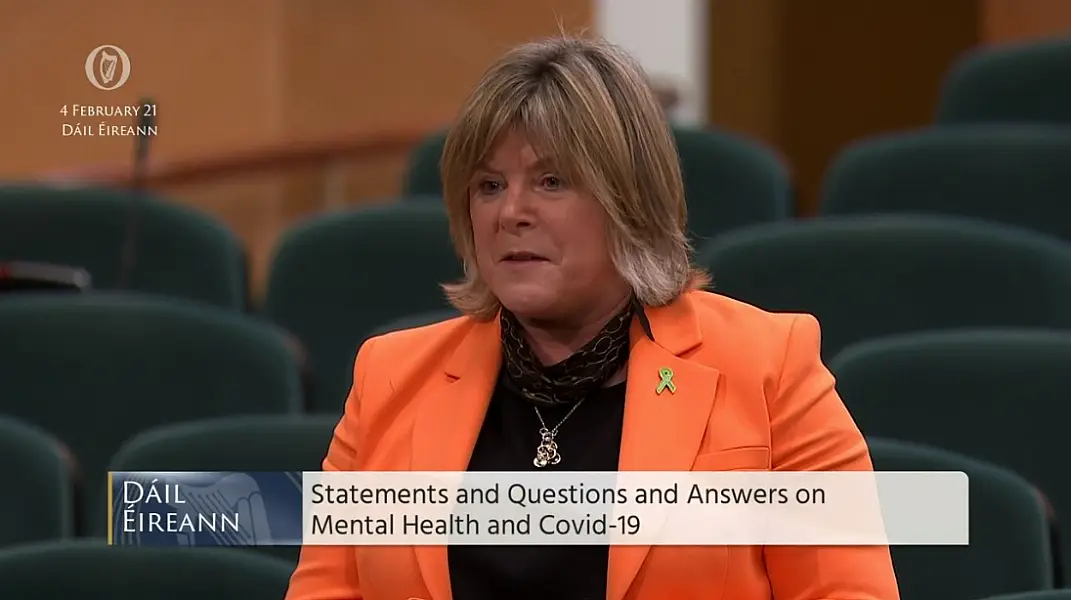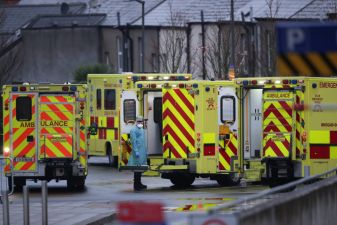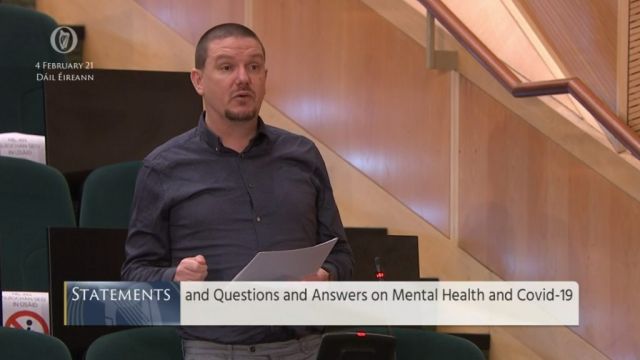More than 8,500 young people are waiting for primary care psychological services, while around 2,500 children and adolescents are on waiting lists for mental health services, a TD has said.
The Dáil heard that the coronavirus pandemic has exacerbated mental health issues across many cohorts of people in Ireland.
Sinn Féin’s Mark Ward said the country has gone from a mental health crisis to a mental health emergency since the onset of the pandemic.
The Dublin Mid West TD said that, since 2017, 242 children have been admitted into adult psychiatric services, almost 30 of them in the first 10 months of last year.
Minister for Mental Health and Older People Mary Butler said the pandemic has been “very challenging”, with some finding it more difficult than others.
“Financial and unemployment worries have caused anxiety, and the disease itself has caused significant stress,” Ms Butler told the Dáil.
“This has been exacerbated in many cases by isolation and bereavement.”

She added: “It is acknowledged that there has been increased presentations in certain areas, particularly in relation to first episode psychosis and eating disorders.
“I’m especially concerned about the rise in eating disorders among girls and young women.”
Mr Ward called for the Government to escalate surge capacity for mental health services to deal with the rising number of people in need of help.
“There are 2,500 children and young people waiting for services at the child and adolescent mental health services,” he said.
“Over 8,500 children are waiting for primary care psychology – behind each of these figures are a child. A child with a family and one that is being left behind.”
Funding
He also said the percentage of funding for mental health services in the overall budget dropped last year compared with 2019.
“During a national emergency it is an absolute scandal that the percentage allocated to mental health spending has fallen,” he added.
Ms Butler said she has held meetings with the HSE and other health officials about the primary care waiting list.
She told the Dáil that she raised her concerns about the waiting list in a meeting with Health Minister Stephen Donnelly last week.
I have never seen such levels of worry and depression
Labour leader Alan Kelly said the pandemic has exposed many gaps in the country’s mental health services.
“We always knew we had gaps in our mental health services, but they have been exposed even more,” he added.
“I have never seen such levels of worry and depression across different cohorts in our country.”
He raised particular concern about young people who face social isolation, loneliness, anxiety and lack employment.
“We are deeply worried about the amount of time young people are spending online up until the late hours of the morning,” Mr Kelly added.
“There is real significant issues that will cause us problems into many years.
“In relation to our young people, I have serious concerns and worries about the legacy of what is happening.”
#COVID19 can exacerbate existing mental health issues. It's therefore very worrying that no funding was allocated to the national eating disorder treatment plan for 2020 - and of the €1.6 million allocated in 2019, none was spent. @HollyCairnsTD pic.twitter.com/8qiXxK3E8n
— Social Democrats (@SocDems) February 4, 2021
Social Democrats TD Holly Cairns said no funding was allocated to the national eating disorder treatment plan for 2020.
And the West Cork TD said that, of the €1.6 million allocated in 2019, none was spent.

“The pandemic has taken its tolls on everyone’s mental health; this is especially felt by people living alone, younger people and those who are not allowed to see their family members since last March,” she added.
“We need immediate measures, a massive investment in resources, distribution of the vaccine, and of course mandatory hotel-based quarantine for people landing on the island and significant co-operation with Northern Ireland.
“This strategy will help us get back to normal quicker, give people hope and address mental health concerns.”







